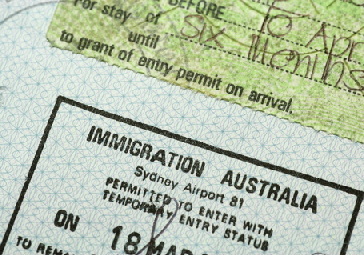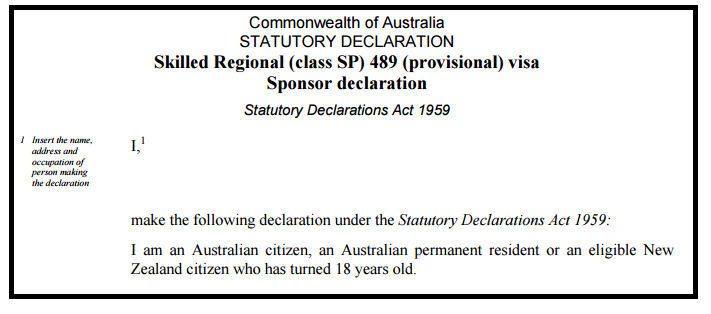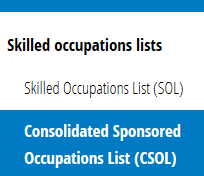- Главная
- Работа в Австралии
- Working visa to Australia
Working visa to Australia
ATTENTION: Australia has a complex visa classification. In this article we present only the categories of permanent work visas for applicants located outside Australia, and not in Australia.
The difference between temporary and permanent work visas

Temporary work visas to Australia do not allow owners obtaining the resident status after their expiration date. Permanent work visas to Australia allow them to obtain the resident status after the end of visa validity period.
Visas have no expiry date: at the end of the expiration date, the permanent resident status is kept, providing that you stay in Australia. If you are going to enter and leave the country several times, being its permanent resident, after the expiration of the visa, you should apply for a visa for the Resident Return visa (RRV). The decision of issuing of a visa depends on the period of time of previous residence.
Sponsored and independent work visas
According to Australia migration legislation, the sponsor can be:
- an Australian employer,
- a relative of the applicant or his/her wife/husband who resides permanently in Australia.

Therefore, sponsored visas imply that there is either an employer who is ready to employ you, or a relative who is a resident of Australia. Entry on a visa sponsored by a relative imposes additional obligations on the sponsor in Australia.
An independent work visas to Australia (non-sponsored) does not suggest the presence of a sponsor. Independent migrants have a smaller number of limitations.
Lists of MLTSSL and STSOL professions
 To enter Australia under the professional migration program, the applicant must have a profession that is on the list of in-demand professions approved by the Australian Government.
To enter Australia under the professional migration program, the applicant must have a profession that is on the list of in-demand professions approved by the Australian Government.
Australia is constantly changing the lists of in-demand professions to better meet the market needs. Since 19 April 2017, CSOL and SOL lists have been changed to lists: Medium and Long term Strategic Skills List (MLTSSL) and Short-term Skilled Occupation List (STSOL).
For detailed information see the combined list of the visa categories.
Categories of the professional work visas
Since 01 July 2012 the Australian Government has introduced amendments to the «Skilled migration program».
Nowadays, Russian have an opportunity to obtain work visas to Australia in the following categories:
- Subclass 189 (Skilled Independent visa- permanent);
- Subclass 190 (Skilled Nominated visa- permanent );
- Subclass 489 (Skilled Regional (Provisional) visa- temporary).
Independent work visa in Australia Skilled Independent – subclass 189:
- this work visa does not require a sponsor in Australia,
- the applicant's profession must appear on the MLTSSL list,
- this type of visa is issued to applicants who have passed an assessment test with a score of at least 60 points and are among the quota vacancies,
- this visa is issued for a period of 5 years and gives the right to stay in Australia after the expiration date without further departure from the country.
Sponsored work visa in Australia Skilled Nominated – subclass 190:
- such work visa to Australia must be in the «nomination» of one of the State Governments where the applicant's profession is in very short supply; at the same time, the applicant must continue to live in this state for at least 2 years,
- the applicant's profession must be comprised in MLTSSL or STSOL list,
- the applicant must score 55 points, also there is an opportunity to receive an additional 5 points for having a «nomination».
Regional Sponsored Temporary visa Skilled Regional (Provisional) — Subclass 489:
- australian sponsor is required to obtain a visa: 1) either a nominee represented by the Government of one of the states where the applicant's profession is in very short supply, 2) or the applicant’s relatives in Australia or his/her wife/husband are living in Designated Areas (sparsely populated area of Australia); in this case, the applicant must continue to live in this region for at least 2 years,
- the visa is temporary, issued for a period of 4 years; after living in Australia for 2 years and having an employee tenure for 1 year in a sparsely populated area of Australia, the applicant has the right to request a permanent visa,
- the applicant's profession must appear in the MLTSSL or STSOL list,
- the applicant must score 50 points but also has an opportunity to receive an additional 50 points for sponsorship.
DIAC permission for the employer
To obtain a work visa to Australia for Russians, the Australian sponsor must have a special permit. It means:
1) that a foreign specialist must confirm the qualification in one of the Australian expert organizations and obtain the appropriate certificate,
2) The employer must convince the Department of Immigration and Citizenship Affairs (DIAC) that there are no such specialists in Australia at the moment.
In case of a positive decision, the employer receives a «Certificate of Sponsorship».



